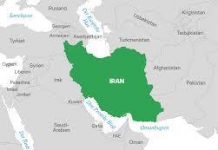
Sheikh Hasina has resigned as Prime Minister of Bangladesh, and the military has taken over amid intense protests calling for her removal. General Waker-Uz-Zaman, the head of the Bangladesh Army, announced that the military will establish an interim government and urged protesters to cease violence and embrace peace.
“We are in a crisis. After consulting with Opposition leaders, we have resolved to form an interim government to manage the country. I assume full responsibility for this transition and assure you that your safety and property will be protected. We will address your demands. I ask for your support and an end to the violence. Cooperation with us will lead to a constructive solution, as nothing can be achieved through violence,” he stated. The Army chief also confirmed that Hasina has stepped down.
In the meeting held today, Opposition leaders and civil society members were present, but no representatives from the ruling Awami League attended. Sheikh Hasina, who began her fifth term earlier this year, has left Dhaka for India aboard a military plane, accompanied by her younger sister, Sheikh Rehana.
Meanwhile, protesters have reportedly stormed Gono Bhaban, the Prime Minister’s official residence, and the Army had reportedly given Hasina a 45-minute deadline to resign. Disturbing images of protesters defacing a statue of Sheikh Mujibur Rahman, Hasina’s father and a pivotal figure in Bangladesh’s independence, are circulating. This imagery marks a significant shift in the country’s political climate, as the legacy of Mujibur Rahman, once a symbol of liberation, is now perceived as part of the contentious political landscape shaped by his daughter’s administration.
The Origins of the Protests
The recent protests in Bangladesh, which began last month and quickly intensified, originated from opposition to a quota system that reserved 30% of government positions for the descendants of Muktijoddhas—those who fought in Bangladesh’s 1971 independence war. Demonstrators argue that this system disproportionately benefits supporters of the ruling Awami League and call for a merit-based system instead. As the unrest grew, the Awami League’s response was forceful, leading to clashes in which over 300 people lost their lives.
Protesters’ frustration was further inflamed by a comment from Prime Minister Hasina. She questioned, “If not the grandchildren of the freedom fighters, then who should benefit from the quota? The grandchildren of the ‘Razakars’?” She added, “This is a question I pose to the nation. If protesters do not comply, I am powerless to intervene. They may continue protesting, but if they damage property or attack police, the law will take its course.”
Hasina’s reference to the Razakars, a paramilitary group infamous for committing mass rapes and murders during the liberation war, resonated deeply with the public. The issue of job reservations has been contentious in Bangladesh for years. In 2018, protests led the government to revise the quota system and remove quotas for certain positions.
The current unrest was triggered by a high court ruling that invalidated the 2018 government circular which had abolished the 30% quota for freedom fighters’ descendants. Although this ruling was overturned by the Supreme Court, which mandated that 93% of government jobs be based on merit and the remaining 7% reserved for freedom fighters’ relatives, the decision failed to quell the protests.




